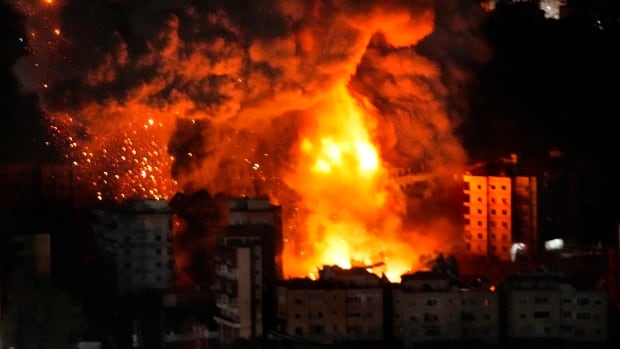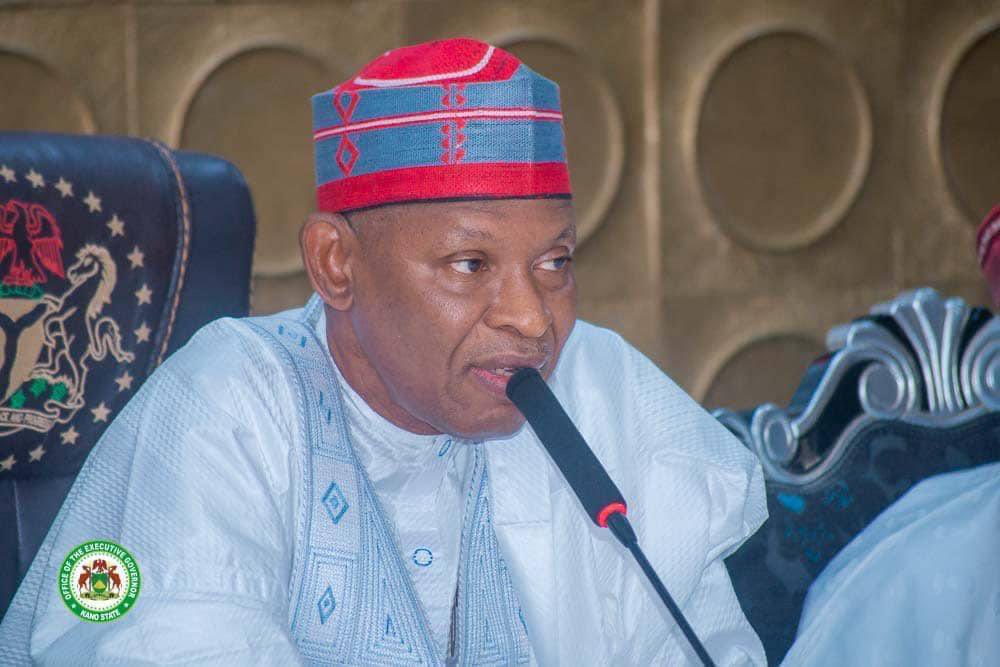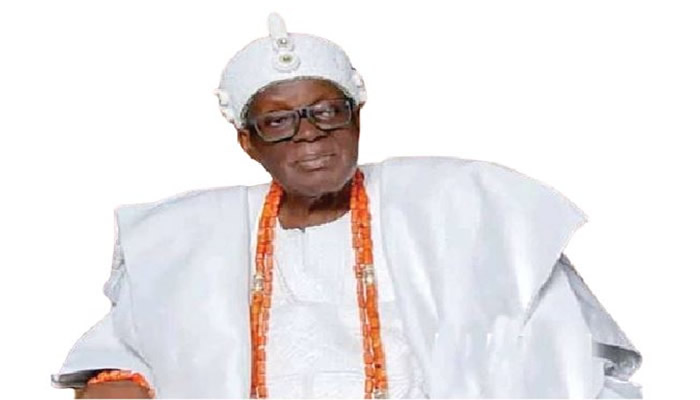Israeli strikes pounded Beirut’s southern suburbs on Wednesday and Hezbollah said it fired precision guided missiles for the first time at Israeli targets, as U.S. Secretary of State Antony Blinken toured the region, pushing for a halt to fighting in both Gaza and Lebanon.
The strikes on the edges of the Lebanese capital sent thick columns of flames shooting up into the night sky one after the other, shortly after an Israeli military spokesperson issued evacuation warnings for the neighbourhood.
Another strike came with no warning hitting the nearby office of pro-Iran broadcaster Al-Mayadeen, the station said. It said the office had been empty since the conflict began. Lebanon’s Health Ministry said one person was killed and five others, including a child, were wounded.
Iran-backed Hezbollah said in a statement late on Wednesday that it had escalated its attacks on Israel, using “precision missiles” for the first time and launched new types of drones on Israeli targets, without offering further details.
U.S. Secretary of State Antony Blinken met Tuesday with Netanyahu as part of his 11th visit to the region since the outbreak of the Israel-Hamas war. After Israel’s killing last week of Hamas leader Yahya Sinwar, Blinken is trying to revive efforts to secure a ceasefire in Gaza. Israeli military forces besieged hospitals and shelters for displaced people in the northern Gaza Strip on Monday. The Israeli military levelled a building in a suburb of Beirut on Tuesday.
Hezbollah later said it had targeted an Israeli military factory on the outskirts of Tel Aviv. Around the time of Hezbollah’s claim, air raid sirens sounded in Tel Aviv and neighbouring cities.
The Israeli military said four projectiles were identified as having been fired from Lebanon, two were intercepted, one fell in an open area and one was identified as having fallen in the area. There was no immediate indication of any defence facility having been hit around Tel Aviv.
U.S. wants more help for Gazans
The intensifying exchanges of fire come as Washington makes a final major push for peace between Israel and Iran-backed groups Hezbollah and Hamas before the Nov. 5 U.S. presidential election that could alter U.S. policy.
Washington has called on its ally Israel to do more to help Gazans, who have faced almost daily bombardments and the destruction of their homes by Israeli forces.
U.S. Defence Secretary Lloyd Austin told his Israeli counterpart that Washington had deep concerns about reports of strikes against the Lebanese armed forces. Austin also urged Israeli Defence Minister Yoav Gallant to make sure Israel takes steps to ensure the safety and security of the Lebanese armed forces and the UN peacekeeping mission in Lebanon, the Pentagon said.
Blinken, who has travelled to the Middle East regularly during the war, is making his first trip since Israel killed Hamas leader Yahya Sinwar, its most-wanted enemy, whose death Washington hopes can provide an impetus for peace.
But the conflict appeared to be spreading, with new strikes around midday on Wednesday on Tyre, a UNESCO-listed port city in south Lebanon, which also came after Israeli evacuation orders.
Tens of thousands of people have already fled Tyre as Israel steps up its campaign to destroy Hezbollah in Lebanon and Hamas in Gaza, both close allies of its arch Middle East enemy Iran.
The port is typically bustling — with fishermen, tourists and even UN peacekeepers on a break from deployments. Israel’s evacuation orders this week have for the first time encompassed swaths of Tyre, right up to its ancient castle.
The Israeli military said it had targeted Hezbollah command and control centres there, including its southern front headquarters.
There was no immediate comment from Hezbollah. Tyre Mayor Hassan Dabouq said the city’s historic sites were not hit.
In Gaza, where Israel has intensified an assault on the northern edge of the territory since killing the leader of Hamas last week, health authorities reported at least 42 people killed in fresh Israeli strikes, most in the north.
Among the dead were Mohammed and Bilal Abu Atwi — a driver for UN aid agency UNRWA and his brother — killed in a strike that blasted their UN-marked vehicle in Deir al-Balah.
“Our children have become martyrs as they were serving their community and people,” their father Marwan said at the hospital where their bodies were laid out in white plastic bags.
Washington aims to head off a widening of the conflict in anticipation of Israeli retaliation for an Iranian Oct. 1 missile attack. Blinken said Israel’s retaliation should not lead to greater escalation.

Blinken met with Israeli officials including Israeli Prime Minister Benjamin Netanyahu, then travelled to Saudi Arabia and met with Crown Prince Mohammed bin Salman. The U.S. State Department said they discussed efforts to end fighting in Gaza and Lebanon.
Arriving in Lebanon for talks on ending hostilities, Germany’s foreign minister Annalena Baerbock said providing arms to Israel posed a dilemma: “On the one hand, Israel is attacked every day and not supporting it would mean that people are not [being] protected … On the other, it is also Germany’s responsibility to stand up for international humanitarian law.”
Lebanon’s government said on Wednesday that at least 28 people had been killed by Israeli strikes in the previous 24 hours, raising the total toll since October 2023 to 2,574.
Much of Hezbollah leadership killed
Israeli attacks in Lebanon over the past month have killed nearly the entire leadership of Hezbollah, blows without precedent in the four decades of Israel’s battles against the group. They include Hashem Safieddine, the militant group’s heir apparent leader after Hassan Nasrallah’s death in a Sept. 27 Israeli airstrike.
Killing Sinwar last week in Gaza caps that with a major blow to its other big foe, Hamas.
Blinken said it was now time for Israel to turn its military victories into “an enduring strategic success,” to bring home hostages and to end the conflict with a clear post-war plan.
In the year since fighters directed by Sinwar rampaged through Israeli towns killing 1,200 people and capturing more than 250 hostages, Israel has laid Gaza to waste to root out Hamas, killing more than 42,000 Palestinians. The past month’s strikes on Lebanon have displaced at least 1.2 million Lebanese.
Hospitals have ceased functioning and had run out of coffins. A UN-backed polio vaccination campaign, launched after a Gaza baby was paralyzed by the disease, was halted.








